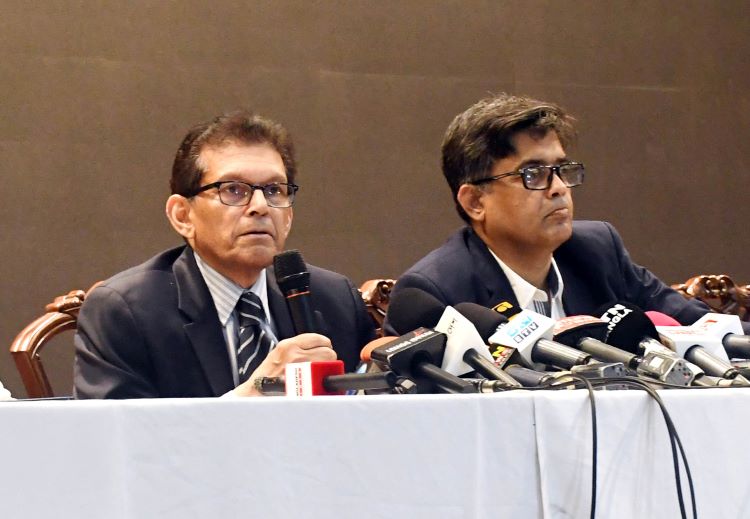News Flash
News Flash

DHAKA, April 8, 2025 (BSS) - Chief Adviser’s High Representative Dr Khalilur Rahman today said Rohingya repatriation is clearly connected to establishing peace in Arakan of Myanmar.
“Ensuring peace in Arakan and Rohingya repatriation are essentially interconnected. None can be pushed back into a warzone. We are always talking about voluntary repatriation,” he told at a press briefing at the Foreign Service Academy here this afternoon.
Referring to the recent visit of Chief Adviser Professor Muhammad Yunus and United Nations Secretary-General António Guterres to Rogingya camps in Cox’s Bazar, Dr Khalilur said Rohingyas showed enormous willingness to return their home in Myanmar but they could not be repatriated until peace is returned there.
Responding to a question, he said the humanitarian aid is supplied to Myanmar through the United Nations (UN), so it is good to continue talks with the Myanmar authorities through the UN.
“This is a multidimensional challenge. Many elements were previously absent, but now the dimensions are coming together. And we are not alone in this effort,” he added.
The high representative said repatriation process requires careful preparation - ensuring safety, livelihood opportunities and a stable environment. This is not unique to the Rohingya situation; it is fundamental to all repatriation processes, he said.
Expressing concerns over instability in Rakhine, where 80 percent of the territory is under the control of the Arakan Army, Dr Khalil acknowledged that conflict may delay the repatriation but highlighted substantial progress over the past three months.
“This issue had been losing global attention, but thanks to efforts by the UN Secretary-General and the Chief Adviser, it has been brought back to the forefront. A dedicated international conference on the Rohingya crisis has also been secured at the UN,” he said.
He underscored the need for ensuring an “enabling environment” for Rohingyas in Myanmar. “You cannot push a community back into a fire. Safety and means of livelihood must be guaranteed. We cannot do this alone — all parties must collaborate.”
About Bangladesh’s role in promoting peace in Arakan, Dr Khalil said: “We are working with international organisations and various nations to address the humanitarian crisis and restore stability in the region. For any meaningful progress, a ceasefire between the warring parties is crucial.”
He said Bangladesh is maintaining contact with all relevant stakeholders, including the Myanmar authorities, the Arakan Army, the United Nations, and friendly nations.
“Our discussions indicate that during humanitarian operations led by the UN, both sides are likely to observe a cessation of hostilities. We are hopeful that this will create the conditions needed for repatriation discussions to become more practical,” he said.
Chief Adviser’s Press Secretary Shafiqul Alam and Deputy Press Secretary Apurba Jahangir were also present at the press briefing.